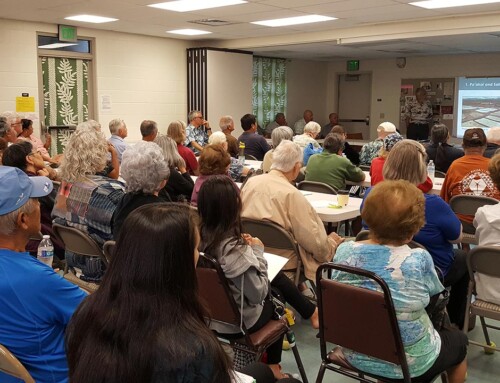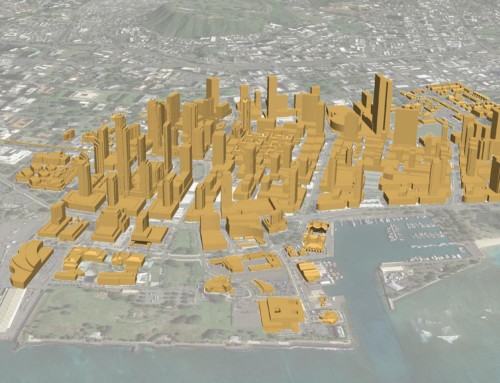In recognition that preserving a community’s historic resources is a way to serve the larger public good, many local governments offer economic and other incentives to increase the level of protection of historic buildings. In Hawai‘i, all four counties have made substantial contributions to preserving and rehabilitating historic structures by providing tax exemptions.
Historic Residential Tax Incentives
In all four counties in Hawai‘i, a property tax abatement is available through the county for owner-occupied residences that were listed on the Hawai‘i Register of Historic Places after January 1, 1977 either individually or as a contributing member of a historic district.
In order to receive this tax abatement, the owner(s) of the property must complete their county’s Petition to Dedicate Historic Residential Properties form by September 1 and submit it to the county. Owners of dedicated properties pay $100 each year in property taxes. The exemption is effective October 1st of the calendar year in which you apply.
In exchange for receiving this tax abatement, the owner agrees to maintain the property in accordance with the Secretary of the Interior’s Standards for Rehabilitation. The concept is that the savings in property taxes will be put into maintaining the structure and preserving its historic character. In the City and County of Honolulu, the owner of a historic residential property must place and maintain a sign or plaque on the property that has been approved by the director of the Real Property Tax Office and the State Historic Preservation Officer. This is not a requirement for the other three counties. Historic plaques that have been pre-approved by the County and SHPO are available for purchase from Historic Hawai‘i Foundation (www.historichawaii.org).
If at some point the owner chooses to demolish the residence or alters it to the point that the characteristics that caused it to be listed are lost or destroyed, the Hawai‘i Historic Places Review Board can remove a property from the register. If this happens, the back taxes with interest of 12% per year will be due to the Real Property Tax office.
The exemption is for 10 year increments and is automatically renewable indefinitely. It is subject to cancellation by the owner or director with five years’ notice at any time after the end of the fifth year.
Historic Commercial Tax Incentives
The City and County of Honolulu also offers a Commercial property tax exemption for commercial properties listed either individually or as contributing structures to a historic district on the Hawai‘i Register of Historic Places after January 1, 1977. A property tax exception is available for designated historic sites that are used for commercial purposes, except for hotel, resort or industrial uses. After acceptance into the program, 50 percent of the value of the real property designated as historic is exempt from real property taxes.
The program was established to provide an incentive for property owners to maintain and preserve their historic buildings. The intention is to use the property tax savings to supplement capital maintenance and improvements to the buildings. For the property owner, the benefit is a tax savings and program for reinvesting in the capital needs of the buildings. For the community, the benefit is revitalization of older commercial areas, keeping them vibrant and active, and preservation of historic buildings. For the City and County, the benefit is active commercial districts that generate opportunities for employment, services and economic development (such as from tenant activity or construction work).
When property owners receive this exemption, they must determine a plan to maintain the historically-significant features of the building following established preservation standards. The preservation maintenance plan is reviewed by the Department of Planning and Permitting, the State Historic Preservation Division and a preservation non-profit organization for concurrence before being sent to the City’s Department of Budget and Fiscal Management for final decision. The City determines whether to grant or deny the tax exemption. The property owners and the City sign a contractually-binding agreement that obligates the property owners to follow the preservation maintenance plan for a period of ten years. A short form of the agreement is recorded against the property. The maintenance agreement is monitored by the City to ensure that the terms are met.
The initial tax exemption period is ten years. It is automatically renewable for an unlimited number of additional ten year periods.








